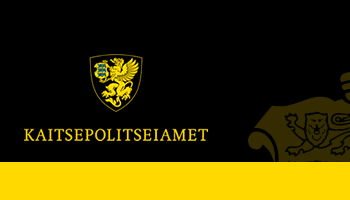But it was impossible for the KGB to black-mail him on his background since his earlier work with the KGB was fully known to KaPo.
The critical factor in pushing Veitman to commit treason was his continuing relationship, starting during his KGB years, with Nikolai Jermakov, who had been recruited after his retirement by the KGB. These personal contacts with Veitman kept Jermakov updated on Veitman's personal life but not his duties in KaPo.
However, because of the enormity of his personal and work-related problems, Veitman revealed a snippet of his professional life and from that there was no turning back, no wiping out that which had been spilled. One can't be a little bit pregnant. Compounding the error, Veitman failed to inform KaPo of his fateful transgression.
Recruitment by the SVR thereafter followed the classical route. He was made to feel important. The SVR used his disappointments at work and his personal overwhelming burdens to their advantage.
From three to four times a year, Jermakov met with the recruited Veitman in Estonia and only once abroad, in Dubrovnik, Croatia. Veitman's betrayal of his country, by supplying the SVR with information about his colleagues, the technical abilities of KaPo and the professional routine of the Estonian agency lasted for ten years. To avoid being caught with compromising materials, he passed on his knowledge verbally with regular personal rendezvous with his handler, Yermakov.
(The Nikolai Yermakov story is like a cheap TV episode. Yermakov is undoubtedly at the top of KaPo's most wanted list. A resident of Tallinn, Tamara Zibunova, 68, who claims to co-habit with the well-known Russian writer Sergei Dovatov , has told the media that she meets Yermakov three to four times a year and knows of his KGB background. She claims to have met Yermakov in Tallinn only last summer. His resident permit expires in June of 2014. After Veitman's conviction, KaPo publically released the names of several individuals who they had failed to arrest. The most noteworthy was Yermakov, Veitman's recruiter, born in 1948.
Yermakov was also indirectly connected to the recruitment of Herman Simm, who was co-opted by Yermakov's superior, Valeri Zentsov.
In 1967 Yermakov graduated from the marine academy as a radio technician and worked for some years on a fish-factory ship. In 1975 he started his KGB training and thereafter worked for some years as a technical operative in the Second Chief Directorate, in counter intelligence, and internal political control. There he met with the head of his technical department, Vladimir Veitman. At the end of his Soviet era career in 1991 Yermakov was the senior operative. It's likely that in 1991 Yermakov was successful in recruiting Veitman who received his first financial compensation in 2002. At that point Yermakov was not an SVR officer but rather a co-worker, whose handler, Valeri Zantsov, recruited Herman Simm.
Yermakov's connections have an unexpected side to them. Max van der Stoel, a minorities commissioner for the Organization for Security and Co-operation in Europe (OSCE) in the early 1990s constantly submitted negative reports on ethnic relations in Estonia while other international observers and organizations constantly viewed the situation in the opposite light. Many were openly questioning the integrity and personal bias of van der Stoel. Some even suggested that he may have been influenced by Russian officials. It's been revealed that his long-time friend and schoolmate , Dutch journalist Hella Rotenberg had been introduced to Yermakov in 1993 and had spent some extended time with him. Yermakov surely would not have championed the realities of the minorities' issue. His perspective would coincide with that of Moscow who to this day has been advancing falsehoods about the wellbeing of Russian speakers in Estonia.)
Veitman told the Russians that the most notorious spy, Herman Simm was under KaPo surveillance. But in spite of this warning KaPo was able to avoid a situation in which Simm, before his arrest was able to detect any surveillance.
Besides Veitman, three other individuals in Estonia have been convicted of treason in the last five years: Senior defence official Herman Simm in 2009; former KaPo official Aleksei Dressen in 2012 and his wife Viktoria as an accomplice. This indicates that Moscow has a lasting interest in Estonia and their targeting of people in clandestine services is aggressive. Russian special services care about their agents as long as they are useful. If not they're discarded. The counter intelligence abilities of Estonia are sufficiently capable of exposing the treason in their midst.
Laas Leivat




